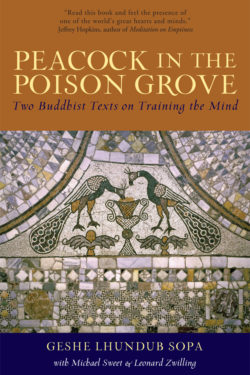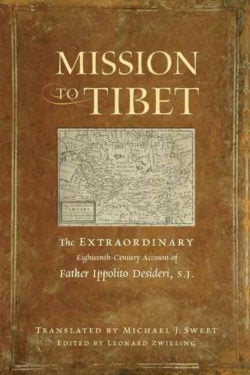Leonard Zwilling

Leonard Zwilling studied with Geshe Wangyal from 1967 to 1978 and graduated from the University of Wisconsin–Madison with a BA in 1970, going on to receive an MA in Hindu studies (1972) and a PhD in Buddhist studies (1976) also at UW-Madison. His dissertation, on apoha in Buddhist logic, was directed by Geshe Lhundub Sopa. He did predoctoral research in Sri Lanka (1973–74) and Nepal (1974–75) under Ford Foundation and Fulbright-Hays scholarships. From 1977 to 1983 Dr. Zwilling taught Asian religions, Sanskrit, and Tibetan at UW-Madison and elsewhere. He received an MLS from UW-Madison in 1985 and from 1986 to 2009 was the general editor and bibliographer of the Dictionary of American Regional English in the department of English at UW-Madison, where he is presently senior scientist emeritus. Dr. Zwilling has published in a number of fields, and since 2005 his work has centered on Ippolito Desideri and missions in Tibet.
Books, Courses & Podcasts
Peacock in the Poison Grove
Geshe Sopa offers insightful commentary on two of the earliest Tibetan texts that focus on mental training. Peacock in the Poison Grove presents powerful yogic methods of dispelling the selfish delusions of the ego and maintaining purity in our motives. Geshe Sopa’s lucid explanations teach how we can fight the egocentric enemy within by realizing the truth of emptiness and by developing a compassionate, loving attitude toward others.
Mission to Tibet
Mission to Tibet recounts the fascinating eighteenth-century journey of the Jesuit priest ippolito Desideri (1684–1733) to the Tibetan plateau. The italian missionary was most notably the first european to learn about Buddhism directly with Tibetan scholars and monks—and from a profound study of its primary texts. while there, Desideri was an eyewitness to some of the most tumultuous events in Tibet’s history, of which he left us a vivid and dramatic account.
Desideri explores key Buddhist concepts including emptiness and rebirth, together with their philosophical and ethical implications, with startling detail and sophistication. This book also includes an introduction situating the work in the context of Desideri’s life and the intellectual and religious milieu of eighteenth-century Catholicism.


